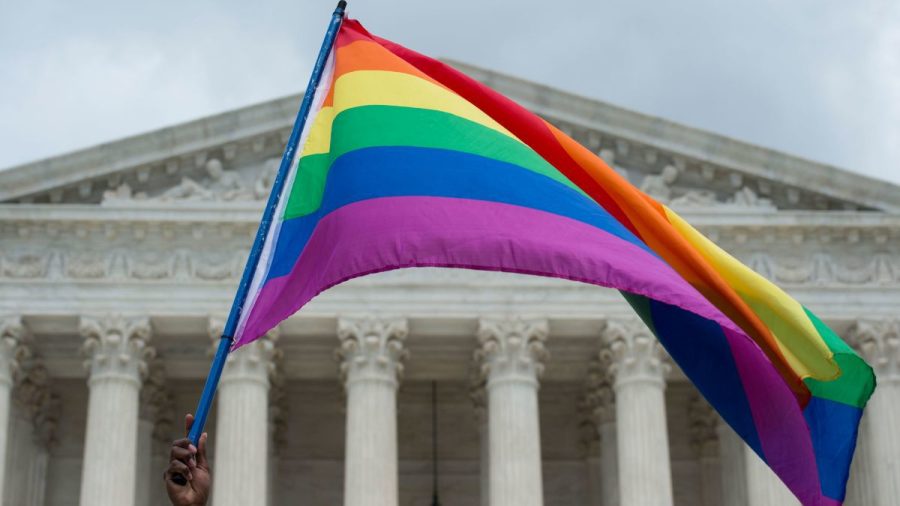Opinion: Supreme Court Decision in Bostock v. Clayton County
Opinion: Supreme Court Decision in Bostock v. Clayton County
July 1, 2020
On June 15, the Supreme Court delivered an astounding victory for LGBTQ rights, stating that individuals cannot be fired for identifying as lesbian, gay, bisexual or transgender. In the case of Bostock v. Clayton County, the Court heard combined arguments from three different lawsuits revolving around similar issues of discrimination against homosexual and transgender employees. In each of the cases, individuals were suing their ex-employers on the basis of Title VII of the Civil Rights Act of 1964. Title VII states that it is “unlawful…for an employer to fail or refuse to hire or to discharge any individual, or otherwise to discriminate against any individual…because of such individual’s race, color, religion, sex or national origin.” The fired employees argued that the nature of the statute included gay and transgender employees. The Supreme Court, in a 6-3 decision, sided in favor of the employees who were let go, declaring that “an employer who fires an individual merely for being gay or transgender defies the law.”
This landmark decision is in line with what we, as Villanovans, stand for. Firing someone for the sole reason of being gay or transgender would violate two of the most important tenets in our school’s motto, Unitas and Caritas – Unity and Love. The core issue at hand in Bostock v. Clayton County is that of wrongful judgment. Clayton County fired Gerald Bostock because he joined a gay softball league, which the county found as “conduct unbecoming of its employees.” Unity and love have no place for this type of judgment.
I believe the majority, if not all, of the individuals in our school community can agree that firing someone based on their race, religion or sexual identity is unquestionably wrong. The Court’s decision provides a victory not only for the LGBTQ community but also for American society, as it supports our nation’s principles – principles rooted in Judeo-Christian beliefs, which despise wrongful judgment and promote acceptance and love.
With this in mind, let us also examine the legal impact of the Court’s decision. The Framers of the Constitution developed a fundamental doctrine concerning how the federal government is intended to function, by what is called “Separation of Powers.” The purpose of this doctrine is to divide the government into three branches: the legislative, whose role is to make law, the executive, whose role is to enforce or execute the law and the judicial, whose role is to interpret the law. This doctrine is crucial to ensuring that no single branch has too much power and ability to dictate American society.
However, what we see in the Court’s decision in Bostock v. Clayton County, even if for the greater good, is a violation by the judicial branch of its interpretive role that the Constitution gives them. Justice Samuel Alito’s opening sentence of his dissent describes this violation.
“There is only one word for what the Court has done today: legislation,” Alito said.
His reasoning is that the Supreme Court has added onto Title VII of the Civil Rights Act of 1964. In other words, they have created law. We must remember that Title VII prohibits discrimination by an employer on the basis of an “individual’s race, color, religion, sex or national origin.” Although most of us wish it did, this act does not mention “sexual orientation” or “gender identity.” The Court has now added these applications to Title VII.
Now, you might be sitting here thinking: “So what? The Court made a decision for the greater good.” That’s fair, but we need to stop and think for a moment if the Court went in the opposite direction. If we allow the Court to add rights not explicitly stated in Congressional acts, then we simultaneously give it the power to take away rights. This is because the power exemplified by the Court in this decision is that of a legislative one. Legislating includes both creating law and eliminating law. It is this power that is supposed to rest solely in a directly elected Congress to ensure laws support the will of the people. The question is: Who should be creating our laws?
In other words, is it right that in this decision, we have six individuals creating law, rather than the 535 members of Congress who have been elected by the people?


